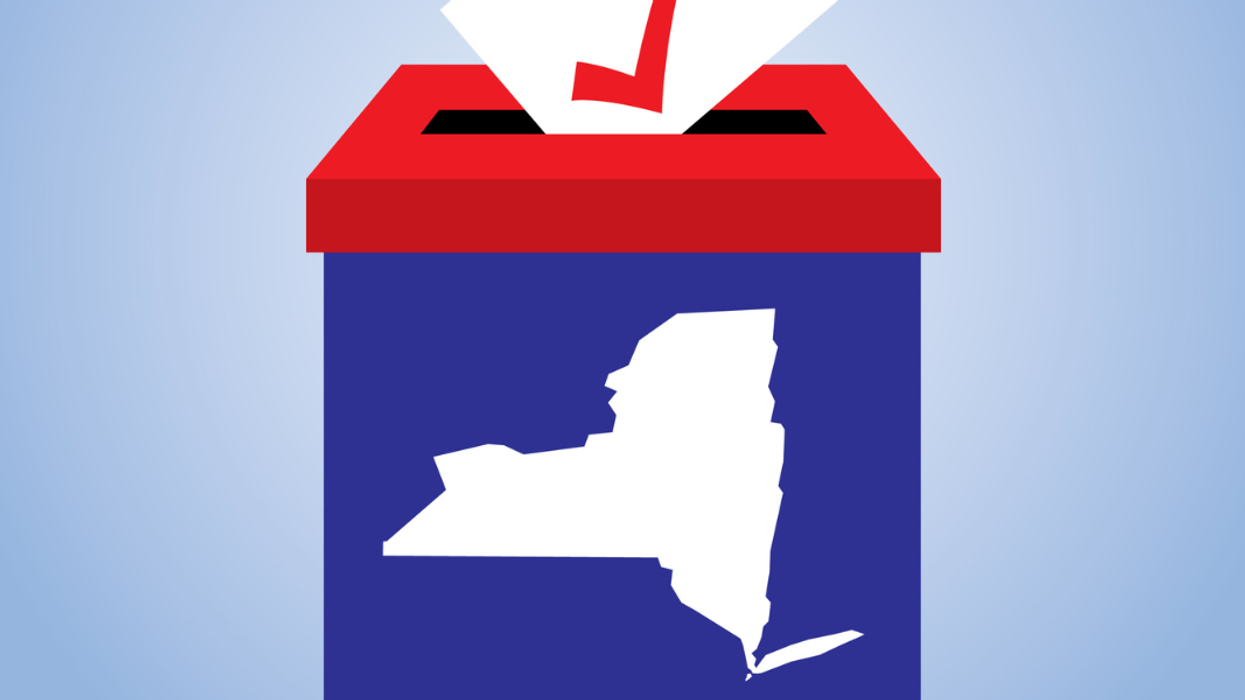Roggenkamp is a junior at SUNY Oneonta and an Ambassador for Students for Open Primaries, a nonprofit dedicated to enfranchising young voters.
As a young voter, I’ve asked myself, “how can I use my voice in a big way?” My first thought was to go out and vote, but when I showed up to the last primary election I was turned away. That’s because while I’m a registered voter, I’m one of over three million independent voters in New York that are barred from voting in the primaries.
I thought back to a time when my Nana, who was born of Italian immigrants in 1928, was beyond proud to be an American. I recently found old newspaper clippings from when she was young, interviewed on the street by local newspapers on the topic of American politics. For her, being a woman with the right to vote was something she was proud of. Those memories had me question, why don’t voters have the same feeling of empowerment in elections today?
I always vote, but I never understood primary elections until recently. Primary elections are crucial to our electoral outcomes because they determine which representatives have a better standing in the general election.
The current system suppresses the voices of independents-derogatorily labeled “other” and “blank” on the New York voter rolls who are told to pick a side. Well, I’m here to tell you that young people, millennials and Gen Z alike, are registering as independents in record numbers- over 50 percent- and we don’t want to pick a side. Why should we be forced to join a private political party in order to vote?
In America, our motto is “United We Stand” because divided we fall, and I believe firmly in unity, freedom, and equality for all. This country is not just Red or Blue, but instead, there are voices that share independent or bipartisan beliefs, and those voices slip between the cracks and become lost along the way during primary elections.
We often forget just how many Americans are independent today. New data from Gallup shows that over 49 percent of Americans today consider themselves to be independent voters. Often these unconventional voices are looked upon negatively by partisans. However, people deserve the right to vote. Since New York is a closed primary state, citizens registered as independent or with no political party do not get to vote during primary elections, locking millions out of the democratic process.
New York is one of twelve states that still uses a closed primary system, and it needs to change. In 2023, more and more New Yorkers no longer identify with a political party, and both political parties in New York have lost voters in the last year and over the last decade. Voters who have chosen not to affiliate with any political party have grown by 22 percent.
There are many arguments on how open primaries would affect the nomination process, but the bigger picture is to stray from the extremes. We need to provide more opportunity and lift the veil to incentivize more voters to have their right to vote in primary elections in New York. Recent studies have found that open primaries significantly increase voter turnout. If our voices are heard and communities feel more understood, there will be a greater and more positive impact for all.
Opening primaries in New York has nothing to do with advancing one side over another but rather the opportunity to include every New Yorker in our most basic right as citizens— voting. As an American, I want the right to choose leaders that align with my beliefs. I am passionate about this issue because of my own experience of being turned away at the polls. I choose to speak up and I refuse to give up my democratic rights- something my late grandma would have frowned upon. The choice is ours in making greater impacts and it starts by reforming how we elect our public officials.
It’s time to open the primaries in New York.


















 Senate Committee on Commerce, Science, and Transportation ranking member Sen. Maria Cantwell (D-WA) (R) questions witnesses during a hearing in the Russell Senate Office Building on Capitol Hill on February 10, 2026 in Washington, DC. The hearing explored the proposed $3.5 billion acquisition of Tegna Inc. by Nexstar Media Group, which would create the largest regional TV station operator in the United States. (Photo by Chip Somodevilla/Getty Images)
Senate Committee on Commerce, Science, and Transportation ranking member Sen. Maria Cantwell (D-WA) (R) questions witnesses during a hearing in the Russell Senate Office Building on Capitol Hill on February 10, 2026 in Washington, DC. The hearing explored the proposed $3.5 billion acquisition of Tegna Inc. by Nexstar Media Group, which would create the largest regional TV station operator in the United States. (Photo by Chip Somodevilla/Getty Images)
